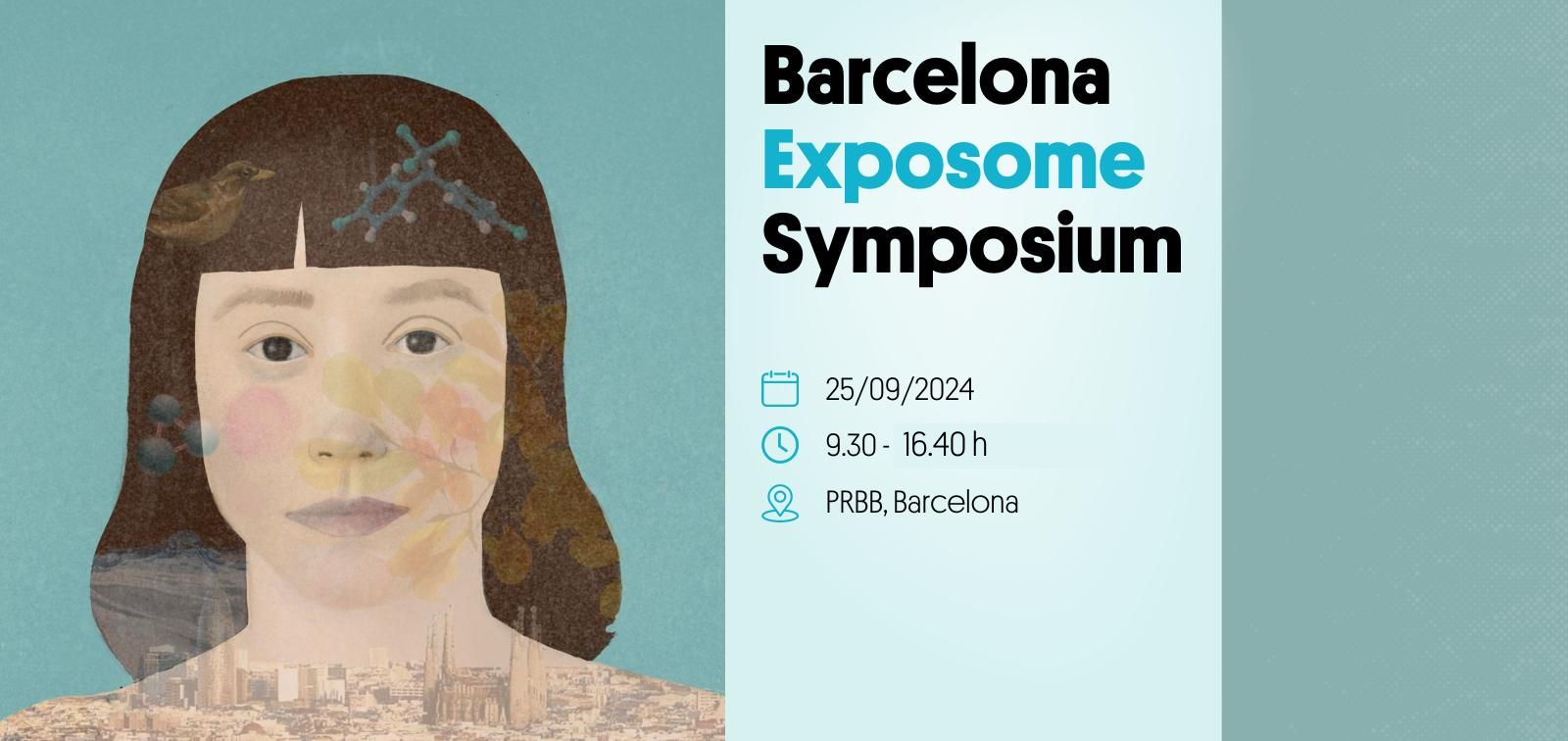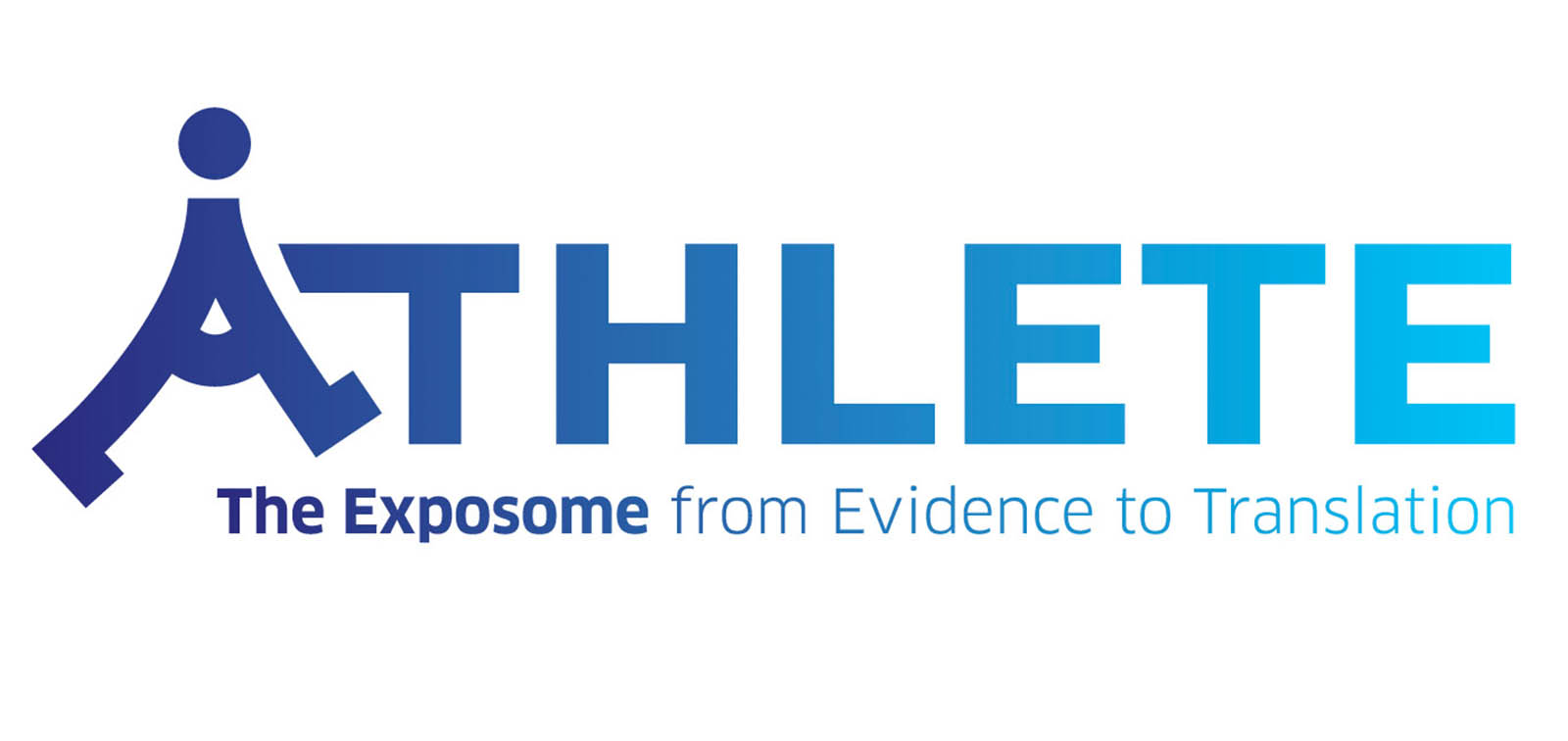The Barcelona Exposome Symposium

- Fecha
- 25/09/2024
- Hora
- 9.30 - 16.40 h
- Lugar
-
PRBB
(Dr. Aiguader, 88) Barcelona
For the first time, institutions across the Barcelona area gathered for the Barcelona Exposome Symposium, an event designed to promote collaboration within the growing exposome research community. The exposome is the integrated compilation of all the physical, chemical, biological and psychosocial factors, and their interactions, which have an impact on biology and health.
The program featured 3 invited talks, 18 abstract-selected presentations, and 15 posters that provided a panoramic view of local exposome research. Key topics included technological advances in measuring environmental exposures in biological samples, novel biomarkers for pollutants and dietary intake, and the role of environmental exposures in chronic diseases and early-life development. They were also discussions on how to integrate the exposome in clinical studies with deep phenotyping such as the Barcelona Brain Health Initiative (BBHI) - A Cohort Study to Define and Promote Determinants of Brain Health, led by the Institut Guttmann.
This event, which brought together around 90 participants, was made possible through the joint efforts of ISGlobal’s Exposome Hub, CSIC, the University of Barcelona, and EMBL - Human Ecosystems Transversal Theme, reflecting the forefront of exposome research in Barcelona. Through the open abstract call, further institutions were represented such as the Universitat Rovira i Virgili and Eurocat. It also highlighted key community needs such as increased networking opportunities, knowledge exchange, interdisciplinary collaboration, and additional funding.
The symposium marks a step forward in the larger initiative to build an International Human Exposome Network and advance the integration of exposome research into public health and policy. There will be further editions.
This event aimed to facilitate the sharing of knowledge, ideas, and resources within the exposome research community in the Barcelona area. With a series of invited presentations, abstract-selected presentations and posters, it provided a panorama of exposome research across different institutions in the Barcelona area.
The exposome represents the comprehensive set of environmental exposures that an individual encounters throughout their life. The exposomics field aims to evaluate how the exposome impacts on biology and health through discovery-based analytical approaches. This local-level symposium was part of a larger initiative to build an International Human Exposome Network.
The symposium covered the following topics:
1. Technological Innovations and Methodologies in Exposomics
- Advanced Analytical Techniques: Innovations in non-targeted chemical exposome characterization, including anthropogenic pollutants and diet related compounds.
- Computational Methods and Data Science: Application of big data, artificial intelligence, and machine learning in exposome studies
- Novel Biomarkers and Detection Methods: Development of new biomarkers and tools for measuring environmental exposures, e.g. microplastics, accurately and comprehensively
- Sensors and Geospatial Modeling Applications: to collect and analyze spatial data on environmental exposures. This includes wearable sensors, remote sensing, and GIS for mapping and analyzing the spatial distribution of exposures and their health impacts.
2. Exposome and Human Health
- Social and physical environment in Low and Middle Income Countries' contexts.
- Early-life Exposures and Child Health: Research on multiple early-life exposures and their effects on child health and development.
- Chronic Diseases and Aging: The role of cumulative environmental exposures in the development of chronic diseases such as cancer, respiratory diseases, and neurodegenerative disorders.
- Precision Medicine: Utilising exposome data to advance precision medicine and improve health outcomes in clinical settings.
3. Biological Impacts and Experimental Modeling in Exposomics
- Molecular and Cellular Responses: Investigating how environmental exposures influence molecular and cellular processes, including gene expression, epigenetic modifications, and metabolic pathways.
- Animal and In Vitro Models: Use of animal models and in vitro systems to study the biological effects of environmental exposures and to identify potential mechanisms of toxicity.
- Integrative Omics Approaches: Combining genomics, proteomics, metabolomics, and other omics data to understand the comprehensive biological impact of the exposome.
4. Translational Research: Bridging experimental findings with clinical and epidemiological studies to better understand the health implications of exposome-related findings.
Scientific Core Committee
- ISGlobal - Exposome Hub (Léa Maitre, Martine Vrijheid, Mariona Bustamente)
- CSIC - Institute of Environmental Assessment and Water Research (Pablo Gago-Ferrero)
- University of Barcelona - Biomarkers & Nutritional and Food Metabolomics Group (Cristina Andres-Lacueva)
- University of Barcelona - Artificial Intelligence in Medicine Lab (Karim Lekadir)
- EMBL, Barcelona - Organoid models of neuroendocrine development and cancer (Talya L. Dayton)
Agenda Outline
- 09.30 - 10.00 h — Welcome Coffee - Networking
- 10.00 - 10.30 h — Introduction local and global exposome research landscape (ISGlobal)
- 10.30 - 11.30 h — Part 1: Invited scientific presentations
- 11.30 - 12.30 h — Coffee Break - Poster session for early career researchers (selected based on abstract selection before the event)
- 12.30 - 13.30 h — Part 2: Invited and abstract-selected scientific presentations
Find here the detailed programme of the symposium.
DETAILED AGENDA
ABSTRACT BOOK
Abstract Submission and Review Process
Abstracts submitted to the Barcelona Exposome Symposium underwent a streamlined review process, starting with an initial screening and coordination by the core team, followed by a detailed evaluation by committee members. The scientific committee then selected the final abstracts. Authors of accepted abstracts were notified by July 27th. The selection criteria focused on relevance to the symposium's topics, scientific rigour, clarity of presentation, interdisciplinary merit, and potential public health impact. This thorough and fair evaluation ensured that the symposium featured high-quality discussions that were both impactful and informative.
Oral presentations (12 min) and Posters were invited for broadly defined exposomics and environmental health related topics. Posters covered a wide range of subjects within these fields.
Coordinated by:
Support provided by:




